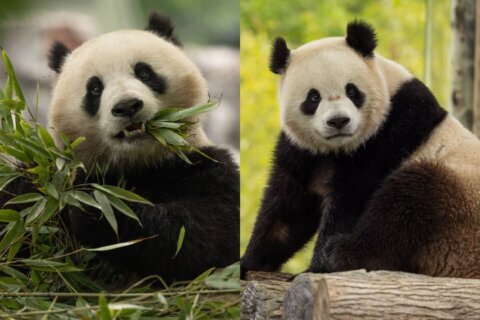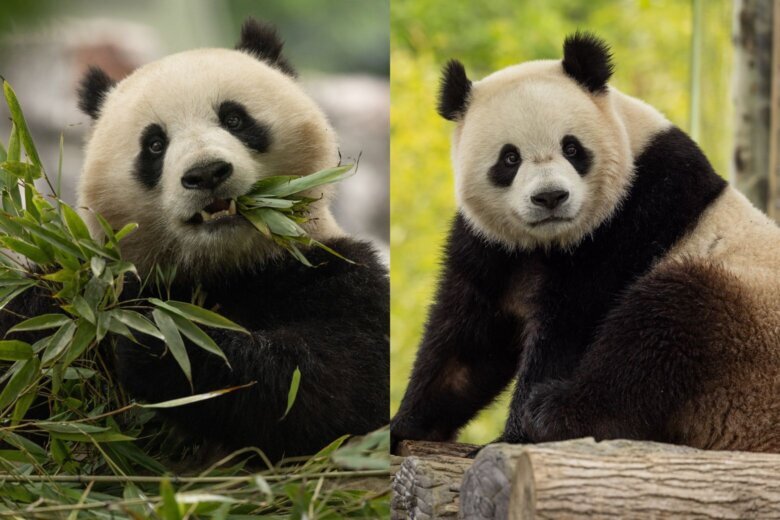It may not be the biggest development in diplomacy since Nixon went to China.

But nonetheless, there’s been a breakthrough with China that’s resulting in giant pandas returning to the National Zoo.
Mario Mancuso is a visiting senior fellow at Hudson Institute, who focuses on national security, foreign policy and economic statecraft. He joined WTOP to discuss the soft diplomacy behind D.C.s soon-to-arrive pandas.
Listen to the full interview or read the transcript. The transcript has been lightly edited for clarity.
Michelle Basch: Thanks for being with us, Mario. It’s no secret the relationship between China and the U.S. is frosty. So how does a deal like this get done? And how does each country benefit?
Mario Mancuso: Good morning. Well, this is a an incredible transition. I think panda diplomacy is really important. And I’ll just remind the audience that, in the last few years, what we’ve been hearing from China is “wolf warrior” diplomacy. So this is the opposite.
This deal apparently got done last fall after President Biden met with President Xi. And it was a sign, I think, that the Chinese leadership was realizing that its current approach to diplomacy really wasn’t working. It wasn’t in the words of Dale Carnegie, you know, making friends and influencing people. That’s where the pandas come in. Because pandas are beloved around the world. And I myself remember when our kids were young, actually watching them online at the National Zoo’s webcam. So I, for one, am also excited.
John Aaron: But at the end of the day, it is a couple of bears, Mario, and we do have our significant differences with China … Do those things just get put on the back burner for now, so we can talk about the happy stuff?
Mario Mancuso: John, you put your finger on something important: Nothing about the pandas, as beloved as they are, changes the fundamental dynamics of the U.S.-China relationship. China is still a strategic competitor to the United States — nothing about that changes. In the meantime, the Chinese will try to, as best they can, soften the edges. And so while nothing changes, China has used the pandas to, again, soften the edges — not just with the United States, but with other countries around the world.
For example, after the Malaysian aircraft went down in 2014, there was a period of time where the Chinese government and the Malaysians were at odds and as a sign of sort of reconciliation, if you will, the Chinese gave them pandas.
The Chinese government is known to do this. It’s done this over many, many years. The practice of panda diplomacy goes back to the Tang dynasty — the seventh century. And nothing changes in a big structural sense between the United States and China. But if it makes a few kids smile, that’s OK, too.
Michelle Basch: There is the overall effort to preserve these bears going forward. And of course, the hope is that maybe there can be another panda baby or two here in D.C. That’s part of this, right?
Mario Mancuso: Absolutely. There’s the scientific sense … Pandas were endangered for a long time — they are no longer endangered, thank goodness. And so the bears will come to D.C. It’s a decades-long agreement. There will be some research that will go along with that. So there’s some clear scientific aspects to this.
But I think, make no mistake, putting aside what officials at the National Zoo may think, this is really about public diplomacy for China. This is really about softening the edges of the People’s Republic in important countries around the world, including the United States.
And again, it doesn’t change — to John’s earlier point — it doesn’t change the nature of the U.S.-China relationship.
But it is nevertheless, if you will, a kind of lull — it creates a space where you know, again, maybe some of the edges of that relationship can be taken off without changing clearly what’s fundamentally at stake for the governments as a whole.
Get breaking news and daily headlines delivered to your email inbox by signing up here.
© 2024 WTOP. All Rights Reserved. This website is not intended for users located within the European Economic Area.







